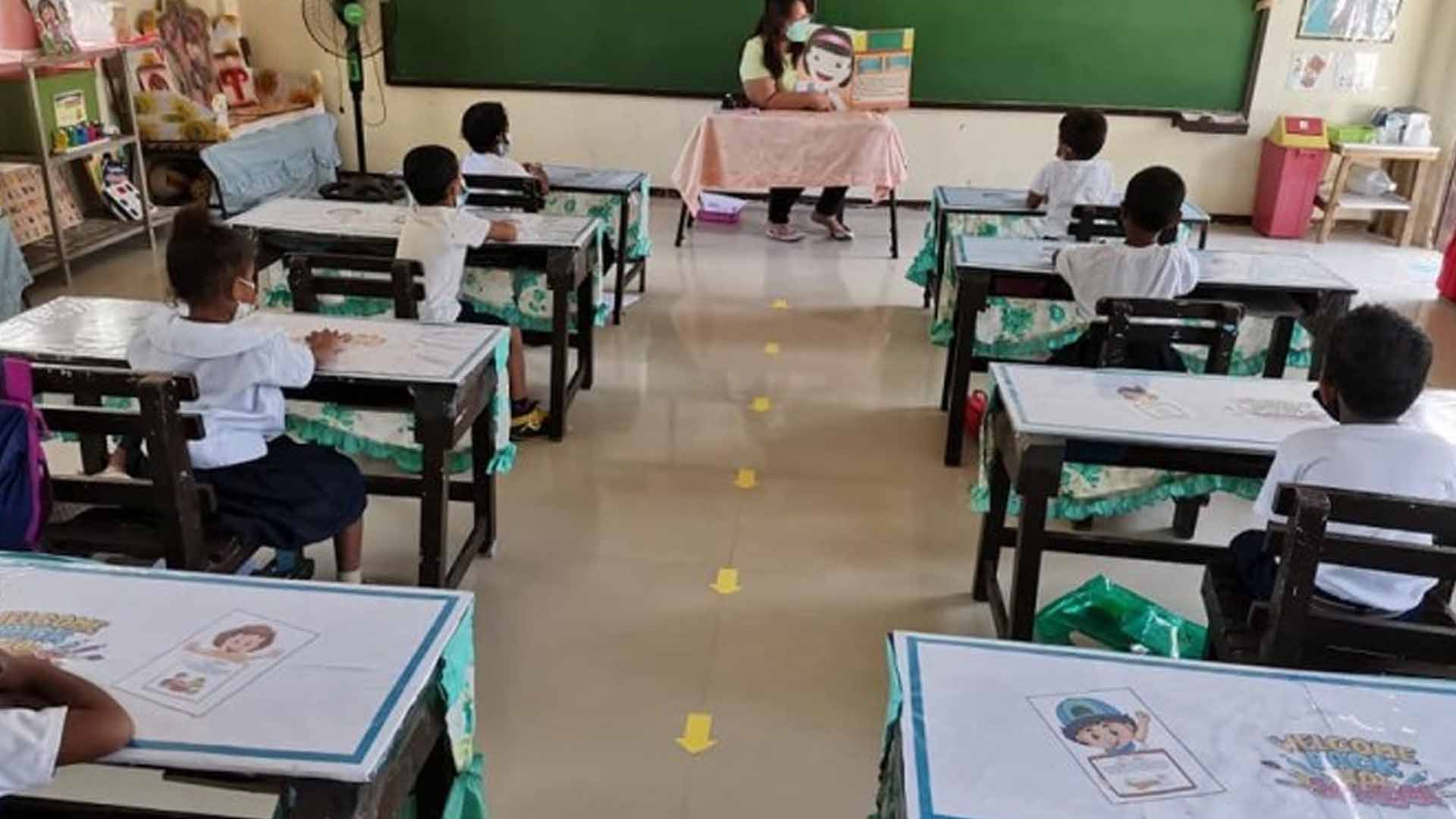Indigenous peoples (IPs) on Monday welcomed the opening of face-to-face classes in an Aeta upland village here, saying it is more beneficial to pupils and parents, especially to some natives who do not know how to read and write.
Rosalie Joy Maaño, officer-in-charge of the Bangkal Resettlement Elementary School, said they have 154 schoolchildren, 80 percent of whom belong to the Magbukun Tribe, who now attend in-school classes from Kindergarten to Grade 3.
Maaño, a member of the tribe in the upland village of Bangkal, said they are hoping that by next week, classes will open for those in Grades 4 to 6.
She said it should have been their third week of face-to-face classes but these were cut short when during the first week, a resident of the area had coronavirus disease 2019 (Covid-19) and they had to stop as directed by the Department of Education (DepEd) and Department of Health (DOH).
Maaño, a Grade 3 teacher, said teachers and children have to fall in line in the school triage before entering their respective classrooms, have their temperature taken, sign record books, and wash their hands.
“Bilin namin sa mga bata na kapag may nararamdaman na sipon at ubo ay huwag na munang papasok dahil isa itong sintomas ng virus at para sa safety na din ng kanilang kamag-aral (We reminded the children not to go to school if they are experiencing colds and cough because those are among the symptoms of the virus and also for the safety of their classmates),” she said.
She said the schoolchildren are aware of the safety protocols because the community and the school always remind them.
Likewise, she said prior to the limited face-to-face classes, a validation and orientation was conducted among the parents to let them know the rules in going to the schools.
“Masaya ang mga bata sa pagbabalik ng in-classes dahil sa community ay hindi 100 percent ang marunong bumasa at sumulat. Iilang pursiyento lang ang nakapag-aral ang magulang at labag man sa kalooban nila ang modular pero wala silang magagawa dahil susunod sila sa protocol ng DepEd kasi nga walang magtuturo sa mga bata (The children are happy for the resumption of the in-classes because in the community, not 100 percent of residents know how to read and write. Only a low percentage of the parents are educated and they are not in favor of modular learning because nobody can teach their children. But they cannot do anything because they need to follow the DepEd’s protocols ),” she said.
Maaño said DepEd and her co-teachers did their best in assisting the children as well as their parents before face-to-face classes resumed.
Juliet Aquile, an Aeta, said she favors in-school classes for her grandchildren.
“Ang mga apo ko ay nahihirapan sa pag-aaral sa bahay lalo na sa high school. Sa high school din dapat kasi nga gaya ng apo ko na Grade 8, hindi naman lahat ng katutubo marunong magbasa at ang ibang magulang ay hindi nakapag-aral, papaano matuturuan ang mga high school na. Iyon dapat ang maibalik na talaga ang face to face (My grandchildren are having difficulties in studying at home especially those in high school because not all here know to read and other parents were not able to study, so how can they teach those students who are in high school? There is indeed a need to resume the face-to-face classes),” Aquile said. (PNA)






















